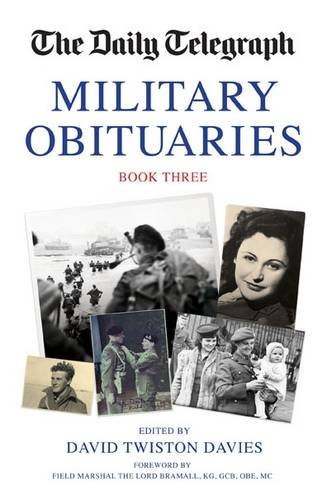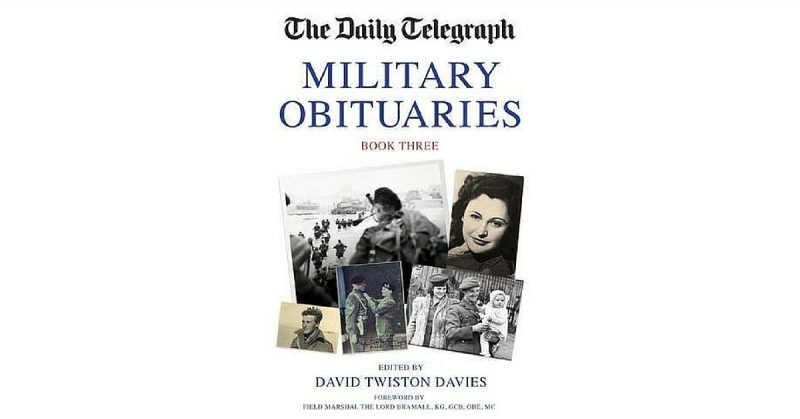Obituary writing is a discipline I admire very much. On most days my day job in newspapers has me copying cuts, cuttings or clippings – depending on where you read this – of people who have passed so that their lives can be assessed and recorded in succinct and yet entertaining prose. They are laid bare and often shown to have surprising and pleasing elements to their lives; although this is not universal! There is nothing funny or heart-warming about some people whose actions cross the barrier of flimsy subjectivity. Obituary writers have it all to deal with. They are masters of an art worth treasuring.
Fortunately many newspapers publish their obits in compendiums, and they make very useful reference books. Here we have the third volume of military obituaries from the London Daily Telegraph, a paper with a proud reputation for having some of the best writers in this specialised field. The younger me read the Telegraph because it had great sports writers, brilliant analysis of military stuff and it was full of the kind of real man bites dog irreverence only a good newspaper could bring in the age before social media. Unfortunately, the paper changed hands, and I rapidly fell out of love with what it evolved into. Nothing lasts forever, but at least the obits keep me interested.
There are a hundred lives recorded in this book. They include the talismanic Harry Patch, a man who earned the unwanted status of an icon in Britain as our last living combat veteran of the Great War. There is Bill Millin the famous piper from D-Day. I counted half a dozen recipients of the Victoria Cross and two holders of the George Cross. I have even met one of these amazing people – the Gurkha VC Lachhiman Gurung. He sat staring with benign indifference while I was all smiles.
Pen portraits tell stories of courage, obduracy, genius and adventure. Many stories are uplifting and some are tragic. I have the bomb disposal expert Olaf Schmid, GC, especially in mind in this respect. The book takes us from the trenches of the Great War to the confusion of modern conflict where enemies and armies are not the clear-cut vision they were a century ago.
It’s funny, but the well-worn adage old soldiers never die; they only fade away has become currency in my life in recent times while I have been writing a book of my own and finding time to reflect on the men of 1916 who walked into the storm on a hot July morning a hundred years ago. For some, the military is heroic, while for others it is just a lifestyle, a job, or a career. However we view them, their lives can be fascinating.
My brief time in uniform was a saga of itchy shirts, peeling spuds, pointless tasks and being shouted at. It was all that my veteran father warned it would be. But for others, it was the making of them. This gathering of life stories offers the richest form of proof that conflict; military service and a special kind of devotion can set some people apart. Military lives add to the mix of what makes our human story so absorbing. Books like this are the sprinkles on our history cake.
Reviewed by Mark Barnes for War History Online.

THE DAILY TELEGRAPH MILITARY OBITUARIES Book Three
Edited by David Twiston-Davies
Grub Street
ISBN: 978 1 90980 831 7
